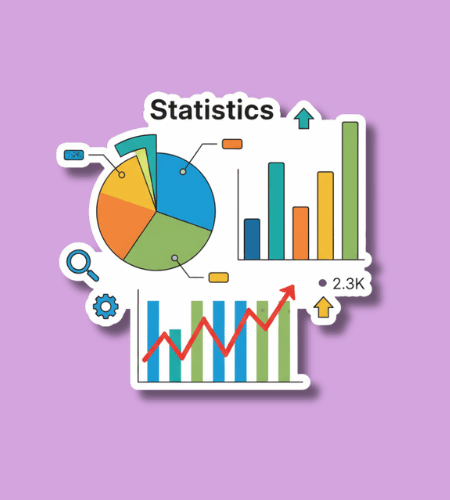World Statistics Day is celebrated on October 20 (every five years). This observance highlights the importance of reliable data, statistical systems, and how numbers shape decisions in every part of our lives.
Table of Contents
History of World Statistics Day
World Statistics Day was established by the United Nations Statistical Commission in 2010. The first observance on 20 October that year was meant to recognize the achievement of official statistics and encourage improvements in data quality worldwide. Since then, it has become a special event held once every five years. When the UN General Assembly adopted a resolution in 2015, it confirmed that Statistics Day would continue to be commemorated every five years on 20 October.
Over the years, World Statistics Day has grown in visibility. Governments, national statistical offices, academic bodies, and civil society organizations use the day to promote better statistical systems, launch new data initiatives, and raise public awareness about how statistics impact policy, development, and transparency.
Why World Statistics Day matters
In an era of rapid change and complexity, we rely heavily on data to understand what’s happening—about health, economies, populations, climate, and more. But data only work if they are accurate, timely, and trustworthy. World Statistics Day reminds us that behind every chart or figure is a chain of effort—from collecting, verifying, and analyzing to interpreting and sharing. Without that, decisions can falter.
Furthermore, this day helps bridge gaps between data producers and data users. Many people see statistics as distant or technical. But they affect everyday life: how resources are allocated, how public policies are shaped, how inequalities are revealed (or hidden). Observing this day encourages transparency, statistical literacy, accountability, and public engagement with numbers that actually matter.
- It celebrates the importance and role of official statistics in society
- It encourages improvements and innovations in data collection and analysis
- It promotes trust, transparency, and integrity in statistical systems
- It helps people understand and use statistics more critically
- It supports data-driven decision making in policy, business, and public life
How to Celebrate World Statistics Day
You can observe the day in many meaningful ways. Read or share interesting statistical reports or infographics with friends or on social media to spark curiosity. If there’s a local statistical office, university, or research institute nearby, see if they host talks, data expos, or workshops—attend or promote them.
You might also try a small data project: pick a local issue, collect simple numbers (e.g. traffic, waste collection, school attendance), analyze them, and present your findings to your community. Encourage conversations about where data come from, how they should guide decisions, and what gaps remain. Use the day to reflect on how data can empower people and support better governance.
Some practical ideas:
- Share an interesting statistic plus its source with commentary
- Attend or host a talk or data‑literacy workshop
- Run a small local data collection or survey
- Create or share infographics that simplify complex data
- Encourage others to ask: Where did that number come from?
World Statistics Day Dates Table
| Year | Date | Day |
|---|---|---|
| 2026 | October 20 | Tuesday |
| 2027 | October 20 | Wednesday |
| 2028 | October 20 | Friday |
| 2029 | October 20 | Saturday |
| 2030 | October 20 | Sunday |
Subscribe to our newsletter and never miss a holiday again!

